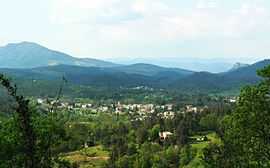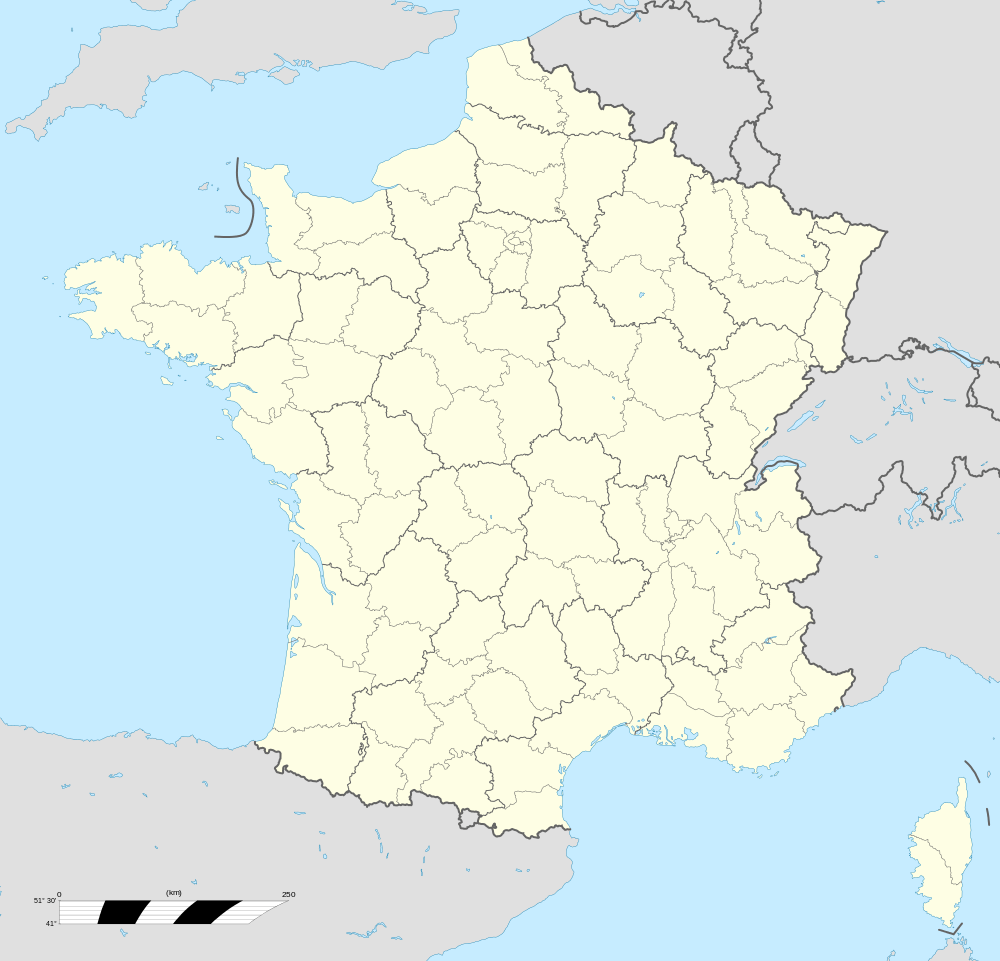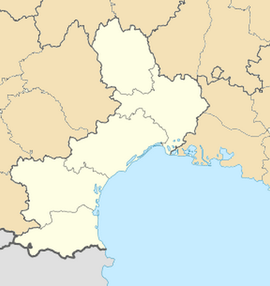Gagnières
| Gagnières | ||
|---|---|---|
 | ||
| ||
 Gagnières | ||
|
Location within Languedoc-Roussillon region  Gagnières | ||
| Coordinates: 44°18′26″N 4°07′48″E / 44.3072°N 4.13°ECoordinates: 44°18′26″N 4°07′48″E / 44.3072°N 4.13°E | ||
| Country | France | |
| Region | Languedoc-Roussillon | |
| Department | Gard | |
| Arrondissement | Alès | |
| Canton | Bessèges | |
| Intercommunality | Cévennes Actives | |
| Government | ||
| • Mayor (2001–2008) | Olivier Martin | |
| Area1 | 11.22 km2 (4.33 sq mi) | |
| Population (2008)2 | 1,080 | |
| • Density | 96/km2 (250/sq mi) | |
| INSEE/Postal code | 30120 / 30160 | |
| Elevation |
159–516 m (522–1,693 ft) (avg. 192 m or 630 ft) | |
|
1 French Land Register data, which excludes lakes, ponds, glaciers > 1 km² (0.386 sq mi or 247 acres) and river estuaries. 2 Population without double counting: residents of multiple communes (e.g., students and military personnel) only counted once. | ||
Gagnières is a commune in the Gard department in southern France.
Population
| Historical population | ||
|---|---|---|
| Year | Pop. | ±% |
| 1793 | 993 | — |
| 1800 | 969 | −2.4% |
| 1806 | 1,105 | +14.0% |
| 1821 | 1,165 | +5.4% |
| 1831 | 1,261 | +8.2% |
| 1836 | 1,362 | +8.0% |
| 1841 | 1,416 | +4.0% |
| 1846 | 1,566 | +10.6% |
| 1851 | 1,827 | +16.7% |
| 1856 | 1,484 | −18.8% |
| 1861 | 1,369 | −7.7% |
| 1866 | 1,399 | +2.2% |
| 1876 | 2,182 | +56.0% |
| 1881 | 2,581 | +18.3% |
| 1886 | 2,985 | +15.7% |
| 1891 | 2,910 | −2.5% |
| 1896 | 3,197 | +9.9% |
| 1901 | 3,250 | +1.7% |
| 1906 | 3,149 | −3.1% |
| 1911 | 2,928 | −7.0% |
| 1921 | 2,935 | +0.2% |
| 1926 | 1,978 | −32.6% |
| 1931 | 1,514 | −23.5% |
| 1936 | 1,196 | −21.0% |
| 1946 | 1,214 | +1.5% |
| 1954 | 1,369 | +12.8% |
| 1962 | 1,263 | −7.7% |
| 1968 | 1,194 | −5.5% |
| 1975 | 1,045 | −12.5% |
| 1982 | 920 | −12.0% |
| 1990 | 878 | −4.6% |
| 1999 | 919 | +4.7% |
| 2008 | 1,080 | +17.5% |
See also
References
| Wikimedia Commons has media related to Gagnières. |
.svg.png)